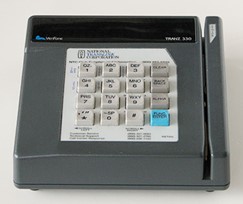With the recent onslaught of data breaches, 64 percent of Americans do not trust retailers with their credit and debit card information according to a survey by national nonprofit
Boston, MA – April 24, 2014

In ACCC’s recent Identity Theft web poll at ConsumerCredit.com, 52 percent of the 208 respondents have had their personal information compromised as a result of circumstances such as a lost or stolen credit/debit card, a security breach or an identity theft scam. Consumers between the ages of 35 and 54 were more likely to have experienced identity theft with 65 percent reporting that they had.
“As technology and the digital age continue to advance, retailers need to find ways to improve security to minimize the likelihood and scope of a potential data breach,” stated Steve Trumble, President and CEO of American Consumer Credit Counseling. “Identity theft is at an all-time high and retailers are rapidly losing consumers’ trust, all of which is detrimental to the economy.”
According to the Identity Theft Resource Center, the total number of breaches tracked from 2012 to 2013 have dramatically increased by 30 percent. ACCC found that 41 percent of respondents are not confident that they know how to protect themselves if their information has been compromised – a risk that could prove costly; credit card and debit card fraud cases in 2012 resulted in losses totaling $11.27 billion as indicated by Cardhub.com.
“Data breaches have become a national epidemic and it is necessary that consumers know how to protect their personal information and what to do in the case that their information is compromised,” added Trumble. “By being proactive, consumers can avoid the potential for devastating financial ruin that comes as a result of identity theft.”
In any case where a consumer’s identity has been stolen or they believe they are at risk, follow ACCC’s “Identity Theft Checklist” for a step-by-step guide on how to recover:
- Contact each of the three credit reporting agencies Equifax, Experian, and TransUnion – and ask to place an identity theft alert on your reports.
•Often if you are a victim of a large-scale security breach such as the 2007 TJX Corporation or 2013 Target breaches, the corporation at fault will provide you with 1 year of free monitoring at no cost to you. - Contact your bank and creditors. You can report stolen/missing cards, as well as any fraudulent activity on your statements. You can also close/freeze any accounts that have been tampered with.
- Contact the Federal Trade Commission. File a complaint with the FTC and you will receive a document verifying that you are the victim. Then, fill out the ID theft affidavit.
- Contact your local police department. File a report with local police. Your identity should be treated like any other stolen property. Document and report the theft to begin the investigation. Get a copy of the report as evidence for re-securing your identity and removing the fraudulent charges.
An online version of the checklist can be found here: /media/168787/what-to-do-after-id-theft-memo.pdf
The Identity Theft poll is the latest in a series of ACCC web surveys for 2014 that focus on a variety of financial education, budgeting, and planning topics.
American Consumer Credit Counseling’s certified and experienced counselors offer various financial education, counseling and debt management services to help consumers achieve long-term financial health and stability.
ACCC is a 501(c)3 organization, that provides free credit counseling, bankruptcy counseling, and housing counseling to consumers nationwide in need of financial literacy education and money management. For more information, contact ACCC:
- For credit counseling, call 800-769-3571
- For bankruptcy counseling. call 866-826-6924
- For housing counseling, call 866-826-7180
- Or visit us online at ConsumerCredit.com
About American Consumer Credit Counseling
American Consumer Credit Counseling (ACCC) is a nonprofit credit counseling 501(c)(3) organization dedicated to empowering consumers to achieve financial management and debt relief through education, credit counseling, and debt management solutions. Each month, ACCC invites consumers to participate in a poll focused on personal finance issues. The results are conveyed in the form of infographics that act as tools to educate the community on everyday personal finance issues and problems. By learning more about financial management topics such as credit and debt management, consumers are empowered to make the best possible financial decisions to reach debt relief. As one of the nation’s leading providers of personal finance education and credit counseling services, ACCC’s certified credit advisors work with consumers to help determine the best possible debt solutions for them. ACCC holds an A+ rating with the Better Business Bureau and is a member of the Association of Independent Consumer Credit Counseling Agencies. To participate in this month’s poll, visit ConsumerCredit.com and for more financial management resources visit TalkingCentsBlog.com.
